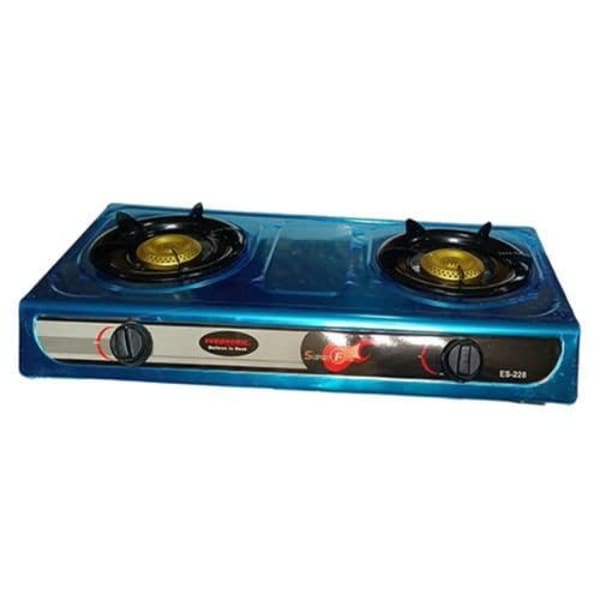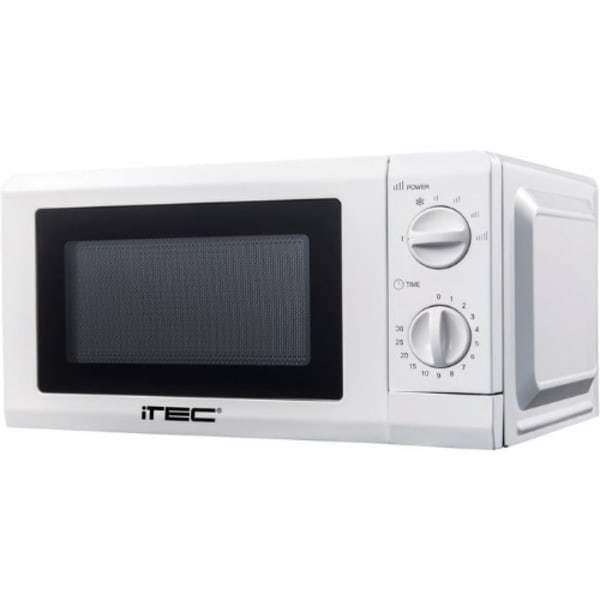Here are the must-have kitchen appliances in a Nigerian kitchen, along with their description and how they are being used:
Gas Cooker or Electric Stove:

A gas cooker or electric stove is the primary cooking appliance in most Nigerian kitchens as it’s used for simmering, boiling, and frying a wide range of Nigerian dishes, from stews and soups to fried foods.
Blender or Food Processor:

A blender or food processor is an essential appliance for pureeing, grinding, and mixing ingredients which is used to blend tomatoes, peppers, and other ingredients into a smooth paste for various Nigerian dishes, such as stews, sauces, and dips.
Rice Cooker:
A rice cooker is a specialized appliance designed to cook rice efficiently and automatically. Rice is a staple in Nigerian cuisine, and a rice cooker simplifies the process of preparing perfectly cooked rice for dishes like jollof rice, fried rice, and rice and beans.
Microwave Oven:

A microwave oven is a versatile appliance that can be used for reheating, defrosting, and even cooking certain dishes. While not as commonly used as gas or electric stoves, microwave ovens are becoming more popular in Nigerian kitchens for their convenience in reheating and quick cooking of certain foods.
Pressure Cooker:
A pressure cooker is a kitchen appliance that uses steam pressure to cook food quickly and efficiently.
Pressure cookers are often used in Nigerian kitchens to prepare stews, soups, and other dishes that require long cooking times, as they can significantly reduce the cooking time while preserving the flavors and textures.
Hand Mixer or Electric Mixer:
Hand mixers and electric mixers are useful for whipping, beating, and mixing ingredients.
These appliances are used for tasks such as mixing batters for fried foods, whipping cream for desserts, and preparing doughs for baked goods.
Water Kettle:
A water kettle is an electric or stovetop appliance used to boil water quickly and efficiently. Water kettles are commonly used in Nigerian kitchens for making hot beverages, such as tea, as well as for preparing ingredients that require boiling water, like garri or local porridge.
Mortar and Pestle:
The mortar and pestle is a traditional tool used for grinding, pounding, and crushing ingredients. It is used to grind spices, herbs, and other dry ingredients into a fine powder or paste. This is essential for preparing various Nigerian dishes, such as pepper soup, egusi soup, and iru (fermented locust bean).
Grinding Stone:
The grinding stone, also known as a grinding slab, is a flat, smooth stone surface used for grinding ingredients. It is used to grind wet ingredients, such as fresh tomatoes, peppers, and onions, into a smooth paste. This paste is a key component in many Nigerian stews and sauces.
Cooking Pot:
Nigerian kitchens often use a variety of cooking pots, including cast-iron pots, aluminum pots, and clay pots. These pots are used for simmering and stewing various dishes, such as soups, stews, and porridges. The material and shape of the pot can influence the cooking process and the final texture of the dish.
Wooden Spoon:
The wooden spoon is a versatile utensil used for stirring, mixing, and serving Nigerian dishes.
Wooden spoons are preferred over metal spoons as they are gentle on the cooking surfaces and do not scratch or damage the pots and pans.
Sieve or Strainer:
The sieve or strainer is a kitchen tool used for separating solids from liquids or for finely straining ingredients. It is used to strain and separate ingredients in dishes like garri, ogbono soup, and other soups and stews.
Knife:
Knife is used in Nigeria kitchen to cut substance into particles. It’s usually used to cut or slice onion, vegetable etc.
These kitchen appliances have become increasingly common in Nigerian homes, as they simplify and streamline various cooking tasks, allowing for more efficient and consistent preparation of traditional Nigerian dishes.






























